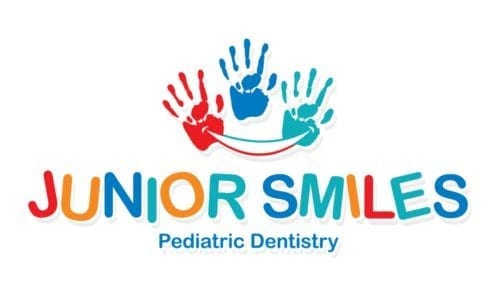I think my daughter is gorgeous. And her (baby) teeth are perfect! But, I need to face reality. She’ll have adult teeth soon enough and I had braces. My mom had braces. So when do I need to start asking myself: does my child need braces? The answer is: as early as possible.
Don’t freak out, mamas. This doesn’t always mean that your child should begin orthodontic treatment as soon as an issue is identified according to Boca Raton pediatric dentist, Dr. Drew Popper of Junior Smiles. In some cases, it’s actually preferable or necessary to wait until adolescence before beginning treatment. Even so, Dr. Popper advises parents that it’s preferable to know-before-you-go. Early awareness allows him to monitor developments and recommend a consultation with an orthodontist. It also helps parents plan, especially financially.

When Does My Child Need Braces?
The American Association of Orthodontists recommends that children be evaluated by an orthodontist by age 7. But, a pediatric dentist is trained to identify potential or developing issues earlier than that. Some issues are most effectively dealt with when intercepted early. Early orthodontic treatment can begin in the age range of 2 – 6 and is usually focused on shaping the proper growth and development of the child’s jaw and arches, to “set the table” for optimum eruption of the permanent teeth. It’s easier and more effective to nudge these structures to develop properly than it is to fix them later.
It’s at around age 7, when some permanent teeth have erupted, that orthodontic treatment begins to take on more of a corrective design. The tissues of the jaw and gums are still developing and are relatively soft and pliable. It’s essentially a good time to move things around and guide the next stages of growth and development.

This transitional phase lasts until around age 13, when your child becomes an…adolescent!
From this point until around age 20, the name of the orthodontic treatment game is ‘malocclusion.’ Moving the permanent teeth so that they’re perfectly lined up and the top meshes with bottom. This is when parents and kids collect the payoff on earlier investments.
There are still those wisdom teeth taking their place at the table and possibly shoving their neighbors around. However, thanks to early evaluation and timely monitoring, wisdom teeth have lost the element of surprise. You can be ready for them!
The teen years are a sensitive period. A kid’s self-confidence can rocket and plummet on an hourly basis. Peer pressures often dominate a teenager’s sense of self. Thus, a tongue piercing can make a teen feel like a boss, but braces can turn them into shrinking violets. Go figure! Each kid is different, and as parents, we need to respect their individuality. Some aren’t at all bothered by having to get braces. Some are even thrilled. A kid who dreads the idea needs reassurance that orthodontists have some terrific solutions these days. There are braces that are practically invisible, for one. A lot of teenage angst about braces is rooted in uncertainty. There’s no perfect remedy for teens’ emotional storms. Dr. Popper believes, though, that the passage through orthodonture can be smoothed bypreparing the child early on.
Orthodonture is kind of like chess. It’s a big advantage to make the first move. That’s why Dr. Popper of Junior Smiles screens his youngest patients for orthodontic issues. Even when he doesn’t find any, he still urges parents to get an orthodontic evaluation for their children no later than age 7. The best outcomes are achieved by being proactive rather than responsive!
Isn’t that the truth?

If you don’t have a local Boca Raton Pediatric dentist, head in for a visit! Contact Junior Smiles today:
Sponsored: This “when does my child need braces” blog post was sponsored by Junior Smiles. All opinions expressed in this blog post are my own and not influenced in any way by the sponsor. Any statistic, quote or other representation about a product or service should be verified with provider and please refer to this site’s Disclosure for more information. I have been compensated, but that does not impact my views or opinions.


